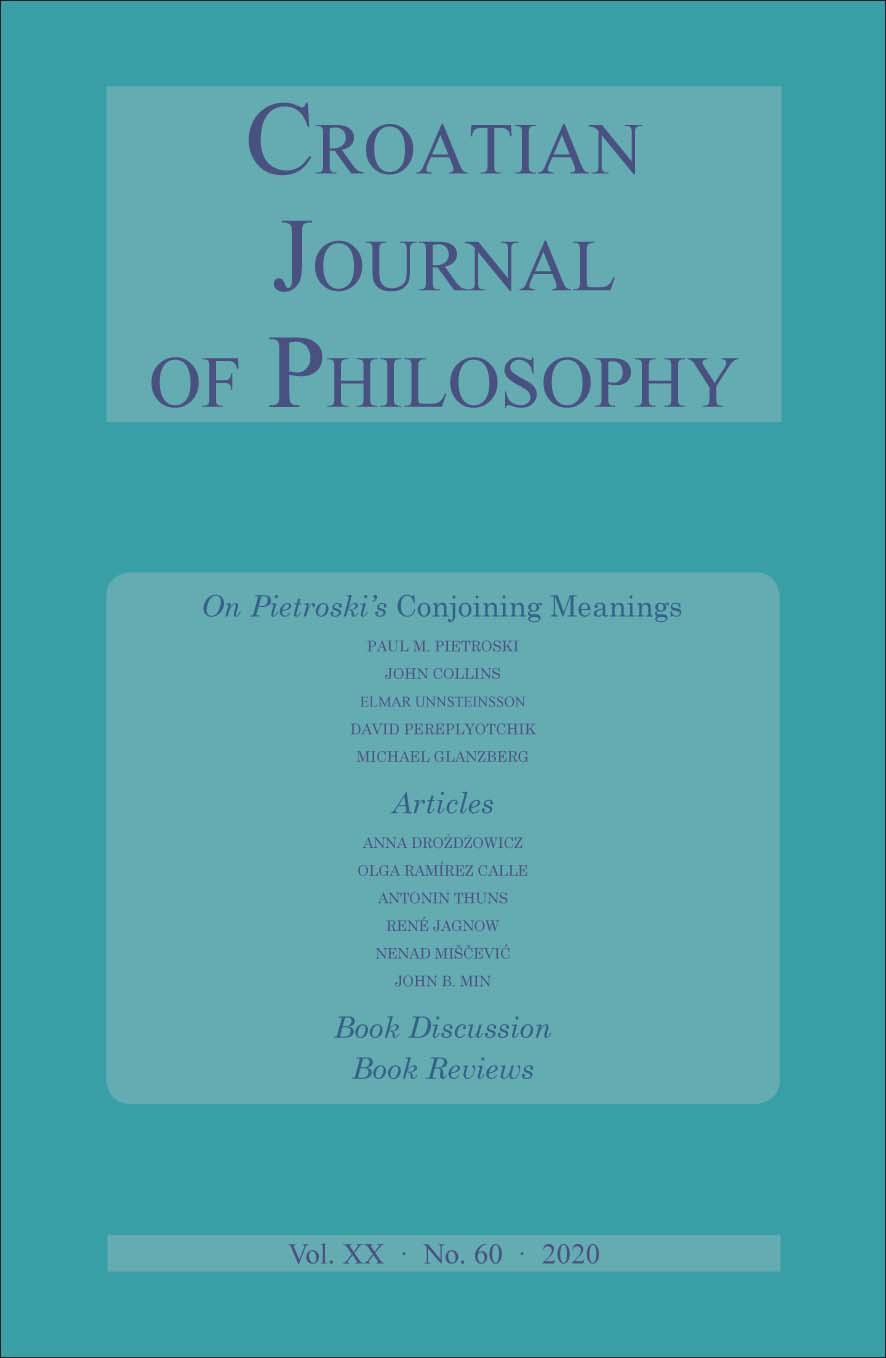Generative Linguistics Meets Normative Inferentialism: Part 1
Generative Linguistics Meets Normative Inferentialism: Part 1
Author(s): David PereplyotchikSubject(s): Logic, Syntax, Lexis, Semantics, Analytic Philosophy, Philosophy of Language
Published by: KruZak
Keywords: Generative linguistics; anti-extensionalism; normativity; inferentialism; predicativism; public language; communication;
Summary/Abstract: This is the first installment of a two-part essay. Limitations of space prevented the publication of the full essay in present issue of the Journal. The second installment will appear in the next issue, 2021 (1). My overall goal is to outline a strategy for integrating generative linguistics with a broadly pragmatist approach to meaning and communication. Two immensely useful guides in this venture are Robert Brandom and Paul Pietroski. Squarely in the Chomskyan tradition, Pietroski’s recent book, Conjoining Meanings, offers an approach to natural-language semantics that rejects foundational assumptions widely held amongst philosophers and linguists. In particular, he argues against extensionalism— the view that meanings are (or determine) truth and satisfaction conditions. Having arrived at the same conclusion by way of Brandom’s deflationist account of truth and reference, I’ll argue that both theorists have important contributions to make to a broader anti-extensionalist approach to language. What appears here as Part 1 of the essay is largely exegetical, laying out what I see as the core aspects of Brandom’s normative inferentialism (§1) and Pietroski’s naturalistic semantics (§2). In Part 2 (next issue), I argue that there are many convergences between these two theoretical frameworks and, contrary to first appearances, very few points of substantive disagreement between them. If the integration strategy that I propose is correct, then what appear to be sharply contrasting commitments are better seen as interrelated verbal differences that come down to different—but complementary—explanatory goals. The residual disputes are, however, stubborn. I end by discussing how to square Pietroski’s commitment to predicativism with Brandom’s argument that a predicativist language is in principle incapable of expressing ordinary conditionals.
Journal: Croatian Journal of Philosophy
- Issue Year: XX/2020
- Issue No: 60
- Page Range: 311-352
- Page Count: 42
- Language: English
- Content File-PDF

